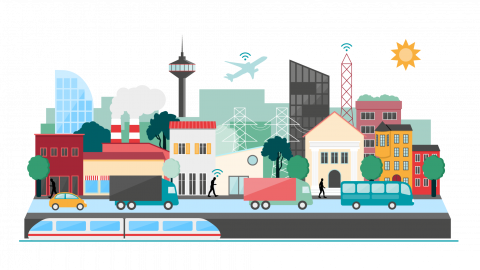Open Source software means that the source code from which the software is created is open and accessible to everyone. Compared to building a house, building a "proprietory house" would give you only the use of the house but no control over its maintenance, decoration or renovation, whereas building an "open source house" would give you not only the right of use but also all ground plans, blueprints, technical specifications and ultimate control and decision-making power for the house. Granting access to all the code in software provides a number of benefits:
Better products
Rapid debugging, rapid further development
Open Source software has always driven interest and inspiration among the best IT professionals, simply because they can understand how each problem is solved. Open source provides endless opportunity for learning and the flexibility to adjust software to your own needs using the open, collective nature of open source. Some of the most popular open source software products are downloaded thousands of times a day for implementation, testing or use in proofs of concept. This supplies a test bed of unique and unparalleled size, and as most IT professionals enjoy both making improvements, finding and sometimes fixing errors, the amount of testing of the products is beyond what any one software vendor could perform.
Because the source code is open, the producer of the software does not just receive feedback on any errors or problems, or proposals for new functions. They also get feedback reports that can specify down to code level what should be done. It is far simpler for the developer or the community behind the software to implement changes on the basis of feedback reports, since these often describe precisely what changes must be made, where they should be changed and how. All in all this increases the speed of debugging and further development, all the time making the software better.
Software code that sustains a critical eye!
Developers who took part in writing the software always know that anyone can see in full detail how it is implemented and what solutions have been chosen. Taking pride in their code and work, they will naturally do the best job possible because their code reflects on their abilities and on them.
Better Services
Within the proprietary software world service is considered "after market". That is, service follows only after the revenue is secured through licensing. When providing professional services for open source software there are two main differentiators: the level of service and competence. Making our living from professional services within a area where you are not required to buy them makes a clear statement: we must always deliver real value for money. We believe we do, by providing a level of service beyond what is expected of IT professionals today and providing the best competence in the market.
Greater flexibility
Open Source code means that it is relatively simple to adapt programs so that they can work with each other. You can see from the source code how a program is made and how you should approach it to, for instance, share or exchange data. Easy integration and interaction makes more flexible IT systems in a world of change.
Lower costs
In the majority of cases, open source software will be available for free. In other words, the acquisition cost is considerably lower than that of the traditional, proprietary software. For the cost of the license, you could, if you need them, rather focus on buying the additional services you need the most, such as expert consulting for installation or adjustments, training, support or IT operations.
Freedom of choice
It is obviously great to have one software supplier to turn to – perhaps to provide services connected with the software, such as installation assistance, courses, operation, support and more, and you have someone to ring if you need help or information concerning the software. But you should have the freedom to choose for yourself whether you will use one supplier or not.
Open Source software gives you this freedom! You will never be held hostage by your software or its maker. For example, if you have software that must interact with another piece of software, proprietary software solutions force you to take what you can get. And what if the supplier goes bankrupt or your collaboration ends in some other way? You are left back at square one in trying to do future debugging or in getting new versions of your software.
The very basis of open source software is an openness that ensures interaction between products and makes it impossible for one player to lock customers to their products by concealing the source code.



